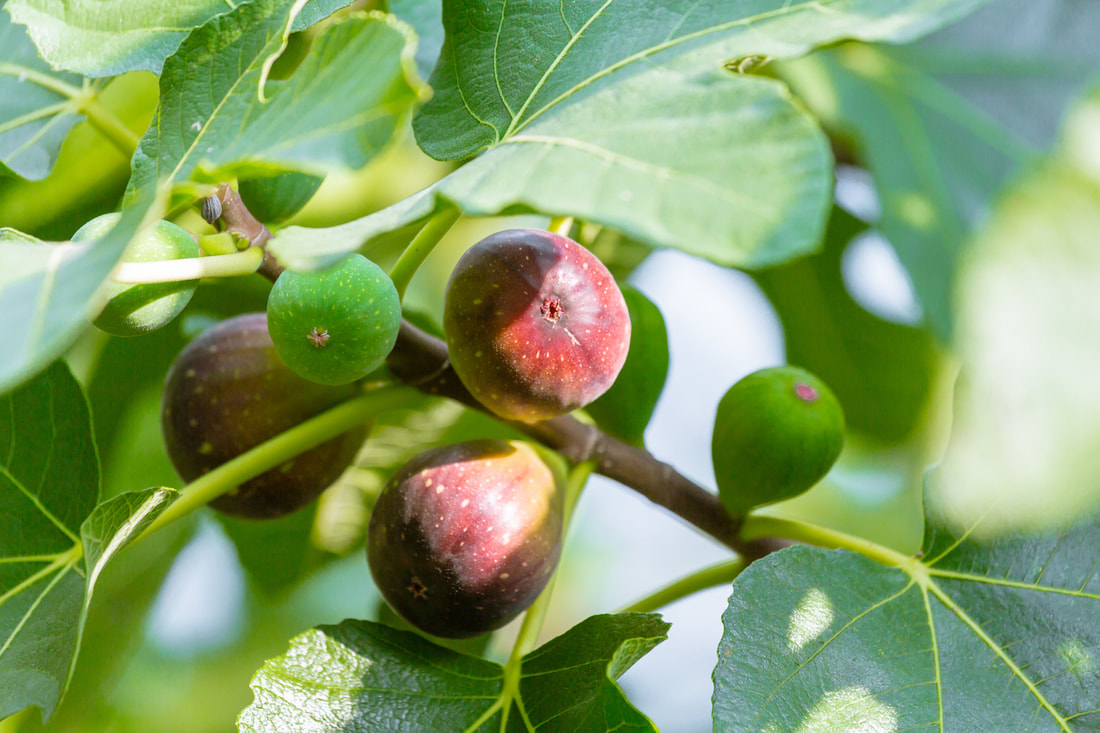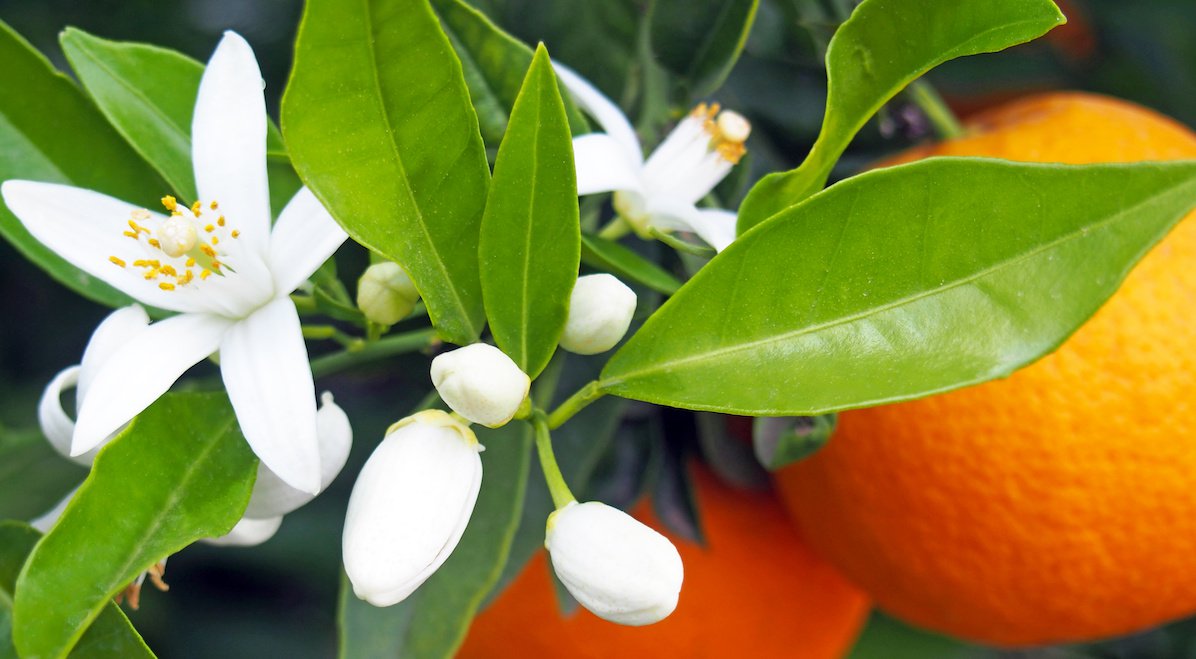I love to garden. I love digging in the soil, planting stuff, and snipping and pruning as I attend to the plant’s wellbeing. It’s relaxing – my time to be with God. But I also love to reap the fruit of my labor. Especially my avocados. So it’s easy for to sympathize with the landowner in this parable. The guy wants a fig, but the tree is barren. This is interesting to me because our neighborhood is littered with fig trees. People often cut them down because they can’t eat all the of fruit that one tree can produce with little or no attention. For a fig tree to be fruitless it has to work pretty hard to be something other than what it was created to be. It seems clear to me that God is the landowner in this parable, frustrated because this creation isn’t doing what it was created to do...to bear fruit! I understand why God would want to just get rid of it. Back here where our orange tree is… we used to have a Japanese Maple. It was a pretty tree that had lovely red leaves. But it barely produced any shade, and it didn’t do much but take up valuable space. So we got rid of it. We chopped it down. And now in it’s place is a truly life-giving tree. God is a God of life, and God expects nothing less from us than for us to bear the fruit of life in abundance. God is the landowner, and each one of us is a tree. And the onus is on us to either produce fruit or risk being composted. To borrow a question often asked by Barbara Walters, “If you were a tree, what would you be?” A giant redwood? A stately elm? My mom would probably be a Christmas tree. And Kathleen would most likely would be the avocado tree in our front yard. I’d be a blood orange tree...it’s a uncommon take on a classic fruit. It’s full of vitamins and flavor. It’s blood red pulp is both tangy and sweet. Plus the tree stay green year round, it doesn’t go bald like I have. And when it blooms the sweetness of the blossom is intoxicating. I think that sums me up, sweet and intoxicating. For my birthday this year, my awesome son gave me a blood orange tree which I planted outside our kitchen door. It’s already starting to grow new shoots and leaves. I’m excited to see how it will bear good fruit in the coming seasons. But what good would this gift be if it didn’t produce any fruit? How would I react if all the time and energy I spent to make this young tree thrive, amounted to nothing? Would it be my fault or the tree’s fault for it’s fruitfulness? This is God’s dilemma. God wants us to be who we were meant to be, the loving caring children of the living God. But when we turn away from God’ will to do our own thing, what good are we to God or to each other? I don’t think the landowner is looking to fault anyone. Instead he puts the tree in the care of the gardener who is willing to give the tree the special attention it needs to eventually be productive. If God is the landowner, and we are the tree, then it’s safe to say Jesus is the gardener. He is our advocate who pleads for us, and who makes sure we are given every chance before a final verdict is made. Through Jesus, God gave us the assurance that we will not parish but have everlasting life! Some time ago, Kathleen found a battered young ficus tree on the curb. She made the conscious decision to pick it up and to give it care. The soil was so dry and hard that when she went to water it the liquid just rolled off the surface. This tree was in dire need of love. It needed to be cared for and repotted. And it needed water and special nutrient enriched food if it was going to survive. This is a great example of Jesus in our lives today. He chose to be with us, to take us in when life abandoned us. He cracks our hard, weathered soil. He rips up the weeds and rocks, and soaks us with his living water until our deepest roots are quenched. With love and care, Jesus snips away the dead branches and the stuff we don’t need so we can grow stronger and reach our potential. He even gives us his holy manure to feed on (but that’s a sermon of it’s own). We might say that the moral of this parable is that with Jesus, God gives us a second chance. But that’s not completely accurate. Yes, the gardener intervenes on behalf of the tree. But the deal the includes a dire prospect: if the tree does not flourish in a year, then yes, grind it up, roots and all. This parable is not just about Jesus’ loving care for us. It is also a sharp reminder of the seriousness and finality of God’s judgment. There’s no time to waste. Spring is but one season of life. Prepare now and you’ll be ready for the harvest. This text forces us to live within that tension between God’s judgment and God’s grace. For the same God that waits one more year will one day judge us all the same. Of course the one who balances this tension for us is the one who is willing and determined to tend to our fruitlessness. Jesus’ mission is to save the tree, us. If we truly desire to follow him, then it must be our mission as well. Together with Christ, we share in the nurturing and care of others, especially the ones kicked to the curb or abandoned by the world. For when we see and do what Jesus does, then we learn and teach the will of God for others to bear good fruit. And what is that fruit exactly? St. Paul tells us it’s, love, joy, peace, patience, kindness, generosity, faithfulness, gentleness and self-control. Are these the things growing in you? I want to leave you with one last thought. As I was taking in the spring beauty budding all around me, a little busy bee caught my attention. I watched as it hopped around the orange blossoms with speed and accuracy. I thought to myself, “This is Jesus” blessing my bloom so that I might reach my potential. But then I noticed this bee was not alone. There were many others buzzing about. We are called to join Jesus in the garden of life to germinate the word and will of God so that everyone has a chance to propagate the good fruit of life. By this we are judged, and the world is saved from itself. Repent, return to God and flourish. Spring is but one season in the year. There is still a lot of work to do. So let us put on our gardening gloves and pick up our shovels and get to work. Let us be the busy, buzzy bees that we are called to be. Nearly three years ago we set out to build a church, not with walls but with people. A church whose vision is to love God, love others and serve both. I don’t know where we are in that journey, but I know how far we’ve come. The trees in our yard are blossoming like mad, and soon fruit will begin to weigh down the branches. But my only goal for this church, and for all her people, has been to make sure when the landowner comes looking for fruit, he will be pleased with what he finds. Go now and be busy buzzy bees for the Kingdom of God so we all might flourish and truly live. Amen. Works Cited Bartlett, David L, Barbara Brown Taylor. ed. Feasting on the Word: Year C, Vol. 2. Louisville: Westminster John Knox Press, 2009. Barreto, Eric D. Living By The Word, Christian Century Magazine. March 24, 2019.
0 Comments
Leave a Reply. |
Rev. Ianhas been blogging under the name: Jesus not Jesús: Looking for Christ in the face of strangers. You can read his posts and browse his archives by clicking here. Sermon Archives
November 2021
Worship with us live on Facebook
Sunday at 11:00 a.m. |
|||||||||||


 RSS Feed
RSS Feed

